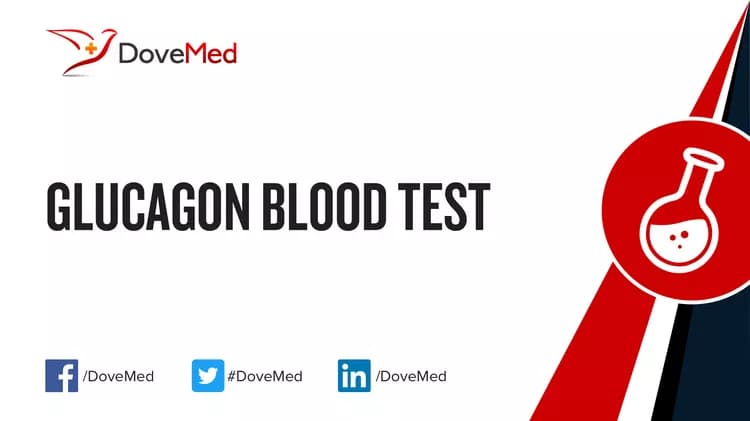What are other Names for this Test? (Equivalent Terms)
- Glucagon Test
What is Glucagon Blood Test? (Background Information)
- Glucagon is a hormone that stimulates the production of glucose, the body’s main source of energy, when levels in the body fall
- Glucose is obtained through the diet directly and indirectly. Foods may contain glucose; alternatively, more complex sugars, such as maltose, lactose, and starch, are broken down and their components converted into glucose
- After a meal, blood glucose levels may rise markedly. Conversely, they may fall after a strenuous workout has forced muscles to use up the body’s glucose stores
- Blood glucose levels must be maintained within a relatively narrow range. Excess glucose in blood may damage tissues, while deficiencies may cause fatigue, lightheadedness, and brain malfunction
- The body compensates for the various factors that impact blood glucose levels through the use of hormones. Two such sugar-regulating hormones are insulin and glucagon. They play opposing roles:
- Insulin is made by beta cells of the pancreas. It is released in blood after a rise in blood glucose (such as after a heavy meal), to help lower it to normal levels by stimulating cells to take in glucose and other nutrients
- Glucagon is made by the alpha cells of the pancreas and has the opposite effect. It is released when glucose levels fall below normal (such as after a workout) and causes cells to produce glucose and release it from their stores
- Problems with either of these mechanisms may cause abnormalities in blood glucose levels that can even be life-threatening
- The Glucagon Blood Test helps determine the levels of glucagon in blood. It is used to diagnose diabetes, cancers, and other metabolic disorders
What are the Clinical Indications for performing the Glucagon Blood Test?
Following are the clinical indications for performing the Glucagon Blood Test:
- Frequent urination
- Increased thirst
- Fatigue
- Blurry vision
- Rapid weight loss
- Tingling and numbing in the extremities
- Giving birth to a baby over 9 pounds
- Obesity
- History of cardiovascular disease
How is the Specimen Collected for Glucagon Blood Test?
Following is the specimen collection process for Glucagon Blood Test:
Sample required: Blood
Process of obtaining blood sample in adults:
- A band is wrapped around the arm, 3-4 inches above the collection site (superficial vein that lies within the elbow pit)
- The site is cleaned with 70% alcohol in an outward spiral, away from the zone of needle insertion
- The needle cap is removed and is held in line with the vein, pulling the skin tight
- With a small and quick thrust, the vein is penetrated using the needle
- The required amount of blood sample is collected by pulling the plunger of the syringe out slowly
- The wrap band is removed, gauze is placed on the collection site, and the needle is removed
- The blood is immediately transferred into the blood container, which has the appropriate preservative/clot activator/anti-coagulant
- The syringe and the needle are disposed into the appropriate “sharp container” for safe and hygienic disposal
Preparation required: No special preparation is needed prior to the test.
What is the Significance of the Glucagon Blood Test Result?
The significance of the Glucagon Blood Test result is explained.
- A high value for the test may indicate:
- Glucagonoma
- Diabetes mellitus
- Chronic renal failure
- Hyperlipoproteinemia types III and IV
- Severe stress
- Infection
- Trauma
- Acute hypoglycemia
- A low value for the test may indicate:
- Cystic fibrosis
- Chronic pancreatitis
Whether the value obtained for the Glucagon Blood Test is high or low, it depends on an individual’s age and is as follows:
- In newborns aged 1-3 days: Greater than 1750 pg/mL is high
- In children aged 4-14 years: Greater than 148 pg/mL is high
- In adults aged more 15 years and older: Greater than 100 pg/mL is high; less than 20 pg/mL is low
The laboratory test results are NOT to be interpreted as results of a "stand-alone" test. The test results have to be interpreted after correlating with suitable clinical findings and additional supplemental tests/information. Your healthcare providers will explain the meaning of your tests results, based on the overall clinical scenario.
Additional and Relevant Useful Information:
- Certain factors may interfere with the results of the Glucagon Blood Test. These include stress, pregnancy, and recent diet and exercise
Certain medications that you may be currently taking may influence the outcome of the test. Hence, it is important to inform your healthcare provider of the complete list of medications (including any herbal supplements) you are currently taking. This will help the healthcare provider interpret your test results more accurately and avoid unnecessary chances of a misdiagnosis.
The following DoveMed website link is a useful resource for additional information:
http://www.dovemed.com/common-procedures/procedures-laboratory/glucose-blood-test/
Please visit our Laboratory Procedures Center for more physician-approved health information:
http://www.dovemed.com/common-procedures/procedures-laboratory/
Related Articles
Test Your Knowledge
Asked by users
Related Centers
Related Specialties
Related Physicians
Related Procedures
Related Resources
Join DoveHubs
and connect with fellow professionals


0 Comments
Please log in to post a comment.